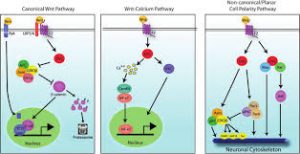Imagine a world in which you live with hearing voices that only you can hear-constantly putting thoughts into your mind that aren’t real. Voices that end up controlling you and impair you from thinking clearly. The media and society coins you as “crazy” and “violent” because they don’t really understand what is happening in your brain. These voices you hear are characterized as hallucinations, and are very realistic for someone who has schizophrenia to experience.
 In order to show empathy and a better understanding of schizophrenia, we must look at what is happening in the brain. Schizophrenia is a mental illness that alters normal brain functioning. Beyond the hallucinations, an individual with schizophrenia may experience delusions, disorganized behavior, disorientation, and memory impairments. Delusions are often times fixated and mistaken ideas of themselves or their surroundings that seem to be illogical yet are very true for the patient. The combination of these symptoms and loss of reality can be extremely terrifying for the patient and their loved ones.
In order to show empathy and a better understanding of schizophrenia, we must look at what is happening in the brain. Schizophrenia is a mental illness that alters normal brain functioning. Beyond the hallucinations, an individual with schizophrenia may experience delusions, disorganized behavior, disorientation, and memory impairments. Delusions are often times fixated and mistaken ideas of themselves or their surroundings that seem to be illogical yet are very true for the patient. The combination of these symptoms and loss of reality can be extremely terrifying for the patient and their loved ones.
Neuronal Disconnectivity
It has been shown that there seems to be a disconnection in communication between different brain regions in the cortex that occurs very early in development that might help explain what is going wrong with individuals with schizophrenia.
Wnt and GSK3 signaling pathway: GSK3 is a protein kinase that is part of the destruction complex in this pathway. When Wnt is present, this allows the binding of the frizzled receptor, which dissociates the destruction complex (becomes inhibited), thus allows B-catenin levels to increase and allow for gene transcription of various proteins necessary for neurodevelopment. So what exactly is going wrong? Great question!

In patients with schizophrenia, there are increased levels of dopamine in the brain, which causes the D2 receptor to bind and inhibit B-catenin that leads to a lack of gene transcription. This increased binding of D2 receptors is also associated with inhibiting another protein of importance, Akt. If Akt is inhibited, this means the destruction complex is more active and thus there is an increase in GSK3 activity, which is likely one of the main problems characteristic in schizophrenia.
In addition to what is happening in the brain, there is also evidence for genetic and environmental risk factors that may lead to the onset of schizophrenia such as maternal infection, increased immune system activity, and even taking drugs that alter the brain as an adolescent.
How do we treat schizophrenia? If you did live a world in which those voices and delusions were all too real, wouldn’t you want to know if you could be free of this disease? Unfortunately, there is no cure, and like many other diseases, we work to decrease the symptoms associated with it. Antipsychotics have been of interest specifically with schizophrenia because they block dopamine signaling (they act as antagonists on the D2 receptor), which deactivates GSK3. However, because those hallucinations and delusions may never go away, it is important that as a society we gain a deeper sense of empathy for those with a mental illness and treat them just as you would anyone else. It’s nearly impossible to fully understand what someone with schizophrenia experiences on a daily basis, but it is time we start trying. With advancements in technology and developments in research recently, maybe one day there can be a way to treat illnesses such as schizophrenia that does not simply just decrease the symptoms, but also targeting the Wnt pathway early in embryonic development.
Image 2: https://www.pbs.org/wgbh/nova/article/schizophrenia-identity/
Image 3: https://pdfs.semanticscholar.org/1852/6562efc9ca3169ef3099bb210f65faf17ee2.pdf
